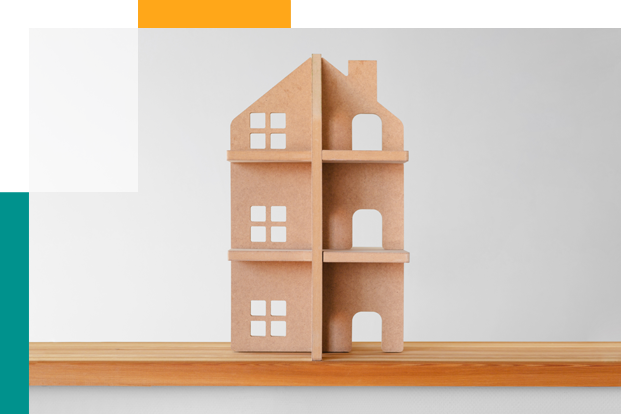FHA Multifamily Loan: What You Should Know

FHA loans are available to you if you cannot obtain a conventional mortgage, a VA loan, or a USDA loan. Although they let you put down less money and are open to those still building their credit, the flexibility comes at a significant upfront and ongoing expense in the form of mortgage insurance charges.
What is an FHA Loan?
A mortgage secured by the Federal Housing Administration is an FHA loan. FHA loans, which require a minimum 3.5% down payment from borrowers with credit scores of 580 or better, are well-liked by first-time home purchasers with limited savings or credit issues.
Mortgages provided by lenders such as banks, credit unions, and nonbanks are insured by the FHA. Because the insurance protects them in case of default, FHA lenders are ready to give favorable conditions to borrowers who might not otherwise be eligible for a house loan. An FHA-approved lender can only issue an FHA-insured loan.
FHA loans are available with fixed interest rates and periods of 15 and 30 years. To help borrowers who might not be eligible for private mortgages have an opportunity to become homeowners, the agency has flexible underwriting rules.
Most loans with a down payment of less than 20% require mortgage insurance. The borrower must pay two mortgage insurance premiums for each FHA loan:
Upfront mortgage insurance premium: When the borrower receives the loan, 1.75 percent of the total amount is paid. The premium may be added to the amount of the financed loan.
Annual mortgage insurance premium: Depending on the loan period (15 years vs. 30 years), the loan amount, the initial loan-to-value ratio, or LTV, the interest rate can range from 0.45 percent to 1.05 percent. By dividing the premium amount by 12, a monthly payment is made.
Most borrowers who funded 90% or less of the property’s value will have their FHA mortgage insurance premiums canceled after 11 years. Until the mortgage is completely repaid, loans with an initial LTV ratio of more than 90% will be insured.
The maximum closing expenses that FHA lenders may charge is 3 to 5 percent of the loan amount. The FHA also permits sellers, builders, or lenders to pay up to 6 percent of the borrower’s closing costs, including those associated with an appraisal, credit report, or title search.
Application Process Work and Requirements for Borrowers
You must fulfill specific requirements to be qualified for an FHA loan. It’s crucial to remember that these are just the FHA’s basic minimum standards; lenders may also have other demands. Below are the requirements for borrowers.
Credit Score
A 500-credit score is required for an FHA loan. You can still be approved for an FHA loan if your credit score is within 500 and579, but you’ll have to put in more money as a down payment.
Debt-to-Income Ratio
The FHA requires a debt-to-income ratio of 50 or less, meaning that your total monthly debt payments cannot exceed 50% of your pretax income. This covers any debts you aren’t currently making payments on. Your FHA loan underwriter will include 1% of the total loan amount as the monthly payment amount for student loans that are in deferment.
Mortgage Insurance
Each loan includes FHA mortgage insurance. You’ll pay an upfront mortgage insurance premium that can be rolled into the overall loan amount when you obtain an FHA mortgage. After that, you’ll make monthly payments.
For the duration of the loan, you will be required to pay mortgage insurance if your initial down payment is less than 10%. For 11 years, those who put 10% down payment will pay FHA mortgage insurance.
Property Approval
Whether you’re looking to purchase a house, a condo, a mobile home, or a multi-family property, the property must meet FHA minimum property standards. The FHA mandates an appraisal, which is distinct from a house inspection.
They want to make sure the house is a good investment or worth what you’re paying for and that it complies with minimal requirements for safety and livability.
Down Payment Funds
Your FHA down payment may be 3.5% if you have a credit score of 580. If your credit score is 500 to 579, you must put down 10% of the buying price. Gifted money is acceptable for your FHA down payment. Suppose the donor sends you a letter with contact information, their relationship to you, the amount of the gift, and a statement that no payback is anticipated.
There are a few FHA loan application needs that buyers must satisfy in addition to financial requirements and must provide to their loan officer:
- Social Security number
- Address (past two years)
- Gross monthly salary at your current job(s)
- Names and location of your employers (past two years)
- Information for all open loans
- Information for all checking and savings accounts
- Approximate value of all personal property
- Complete information for other real estate you own
Types of Properties Eligible for Financing Under FHA Multi-family Loan
FHA financing is available for different kinds of properties. This loan is available for various property types, including mobile homes, condos, single-family homes, and multi-family homes with up to four units. Only homes you intend to live in as your primary residence may be purchased using an FHA loan.
Mobile Homes
This house loan may necessitate a higher credit score than other FHA-approved property types. To be eligible, the mobile house must have been erected on or after June 15, 1976, and it must adhere to Model Manufactured Home Installation criteria and applicable local and state regulations.
Condos
Although FHA condo loans could have particular conditions, you can use an FHA loan to buy a condo unit in a condo building that has been approved. The condominium complex must be listed on Housing and Urban Development’s (HUD) master list of authorized condominium projects for you to purchase a condo with an FHA loan.
Mixed-Use Properties
You might be allowed to buy a mixed-use property with an FHA mortgage loan if the property you want is predominantly zoned residential and you plan to use it as your primary residence. An FHA loan cannot be used to purchase an investment property, but depending on the lender’s requirements, a mixed-use property with at least 51% of the space set up for residential use might be eligible.
Fixer-Uppers
Ask your lender about applying for an FHA 203(k) rehabilitation loan if your home requires extensive work, such as installing a new roof or remodeling the kitchen. While these loans do not differ from other loans in the FHA’s recommended FICO score range, your lender may have additional requirements to qualify.
How to Find a Lender Who Offers FHA Multi-family Loan
FHA-approved lenders provide home loans to FHA applicants, and as long as the FHA minimum requirements are met, they are free to determine their interest rates, fees, and underwriting requirements. The largest banks, credit unions, neighborhood banks, and independent mortgage companies are all examples of approved lenders.
Conclusion
FHA loans are a fantastic choice for consumers with less-than-perfect credit or limited funds for a down payment. Nevertheless, remember that an FHA loan would have higher long-term costs because they require payments for mandatory mortgage insurance.
Finance Lobby is the best commercial real estate financing marketplace. We make it simple for commercial lenders and mortgage brokers to locate and close deals that are a perfect fit.


